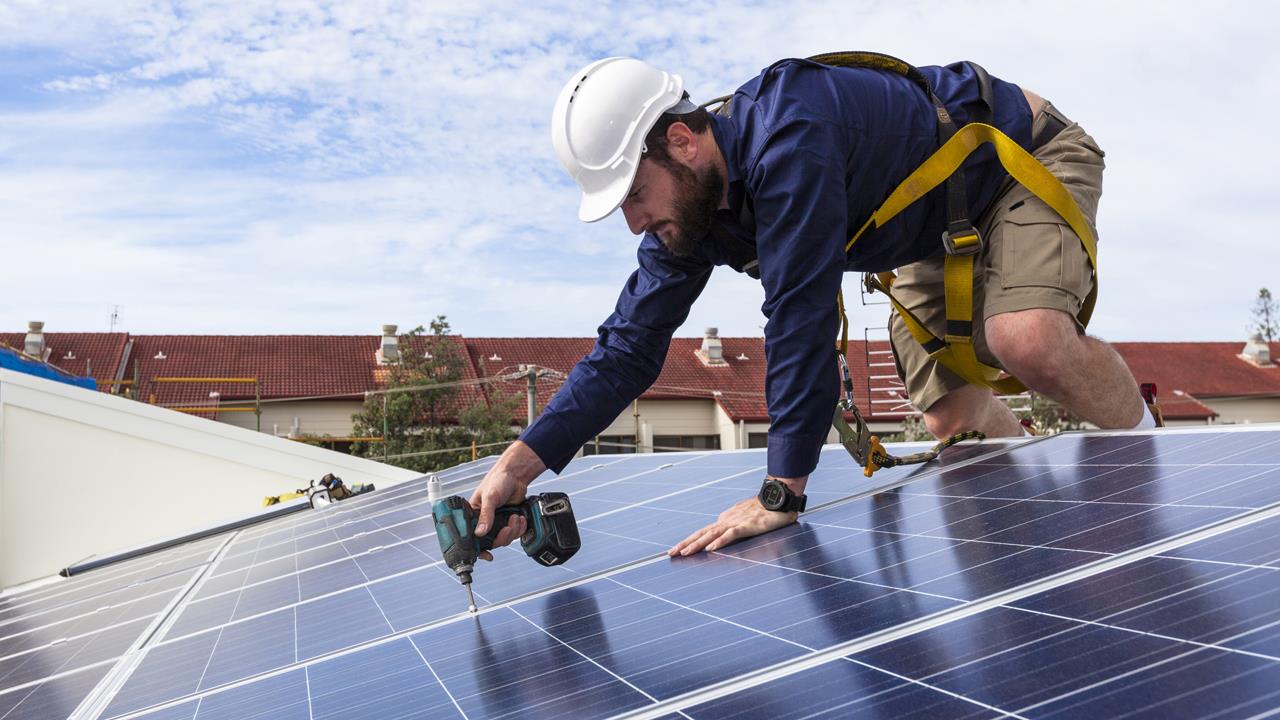


Isaac Occhipinti, Head of External Affairs at the HWA, takes a look at how installers can talk to consumers about how to maximise their energy efficiency by using solar PV to heat hot water.
The subject of ‘renewables’ has become a regular topic of discussion across the heating industry agenda for some years now, but today I want to focus on just one type of generation which provides two-fold savings.
According to the Department for Business, Energy & Industrial Strategy’s Energy and Climate Change Public Attitude Tracker, solar PV is the most popular renewable energy in the UK and its deployment reached 13,123MW installed capacity at the end of January 2019, with installations continuing to date despite the closure of the feed-in tariff (FiT) to new applicants from April 2019.
The scheme, which has encouraged more than 980,000 households to install solar PV since it was launched in 2010, has helped to establish the UK as a dynamic PV market in Europe.
Consumer awareness of the obvious benefits of installing solar PV is established and growing – capturing the sun’s energy using photovoltaic cells to generate electricity. These cells don’t need direct sunlight to work – they can still generate some electricity on a cloudy day.
But what about the less obvious benefits? For those engineers who are either involved in installation or have customers who have, or are considering solar PV installations, are you aware of the additional savings that can be made from the partnership between hot water storage cylinders and solar PV installations?
We know that it can be a challenge to remain competitive, so additional products and services often get dropped from quotes, but when you consider the quick payback and long term savings from a system such as solar PV energy diversion, it becomes an easier sell.
Which is why one of Hot Water Association’s (HWA) ongoing priorities is to explore and communicate the UK’s potential to store the energy generated from solar PV systems locally, using hot water storage as the mechanism. Making use of excess electricity and maximising consumer investment. After all, the energy produced by the consumer is more valuable than the payback they receive.
There are now systems on the market which homeowners can connect to their immersion heater and use to heat domestic water when there is excess solar-generated energy available.
The stored hot water can then be used to meet the hot water demands of the household later in the day. By directing surplus energy to the immersion element, homeowners can utilise up to 100% of all self-generated green energy – even when they are not at home.
To assess the benefits of using surplus electricity from solar PV installations to heat hot water, HWA conducted a study taking the average daily hot water energy requirements for each month, and daily solar PV data estimates based on modelled daily solar generation data, to estimate the savings that could be made by using surplus electricity to meet hot water demand.
For an average property (for the purposes of the calculation, it was assumed that the property is home to 2.4 occupants), the HWA estimates that the homeowner could save between £90 and £240 per annum and meet around 50% of their hot water energy requirements if they were to divert their excess solar energy using the products currently on the market which homeowners can connect to their immersion heater.
This equates to a three-year payback and, based upon average prices of the products required to do this, it becomes a much easier sell to the homeowner. Whichever way you look at it, it makes sense to utilise as much of the solar-generated electricity on site as possible.
There are over 980,000 homes in the UK with solar PV arrays installed on their roof. Are they all aware of or making use of the excess energy generated? Probably not.
In fact, research has found that the vast majority of homeowners with solar PV installations are actually dissatisfied because, as they are out at work when the energy is being generated, they cannot consume all of the surplus energy and therefore do not see the true benefits.
Is this a conversation you are having with homeowners? Perhaps the next time you visit a home with solar PV you can explain that diverting the excess energy to a hot water cylinder, which may ordinarily be fuelled by a boiler, will save significantly on gas bills.
The boiler will only supply energy to the cylinder if the water has not achieved the desired temperature. This means literally every day the cylinder will be at least pre-heated. In summer, when there are longer daylight hours, most cylinders will be brought up to full temperature.
Compared to diverting excess PV energy to power batteries, which are expensive and have a limited lifespan, solar PV hot water generation is surely a no brainer?
If you'd like to keep up-to-date with the latest developments in the heating and plumbing industry, why not subscribe to our weekly newsletters? Just click the button below and you can ensure all the latest industry news and new product information lands in your inbox every week.